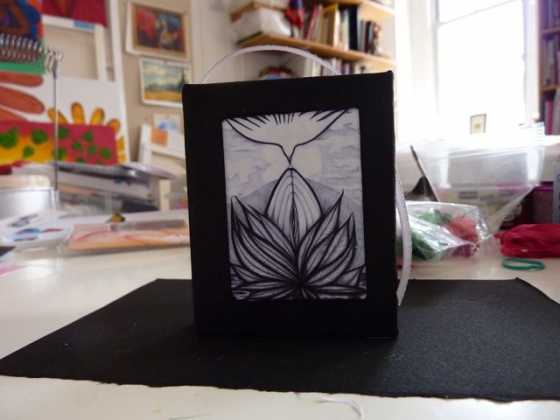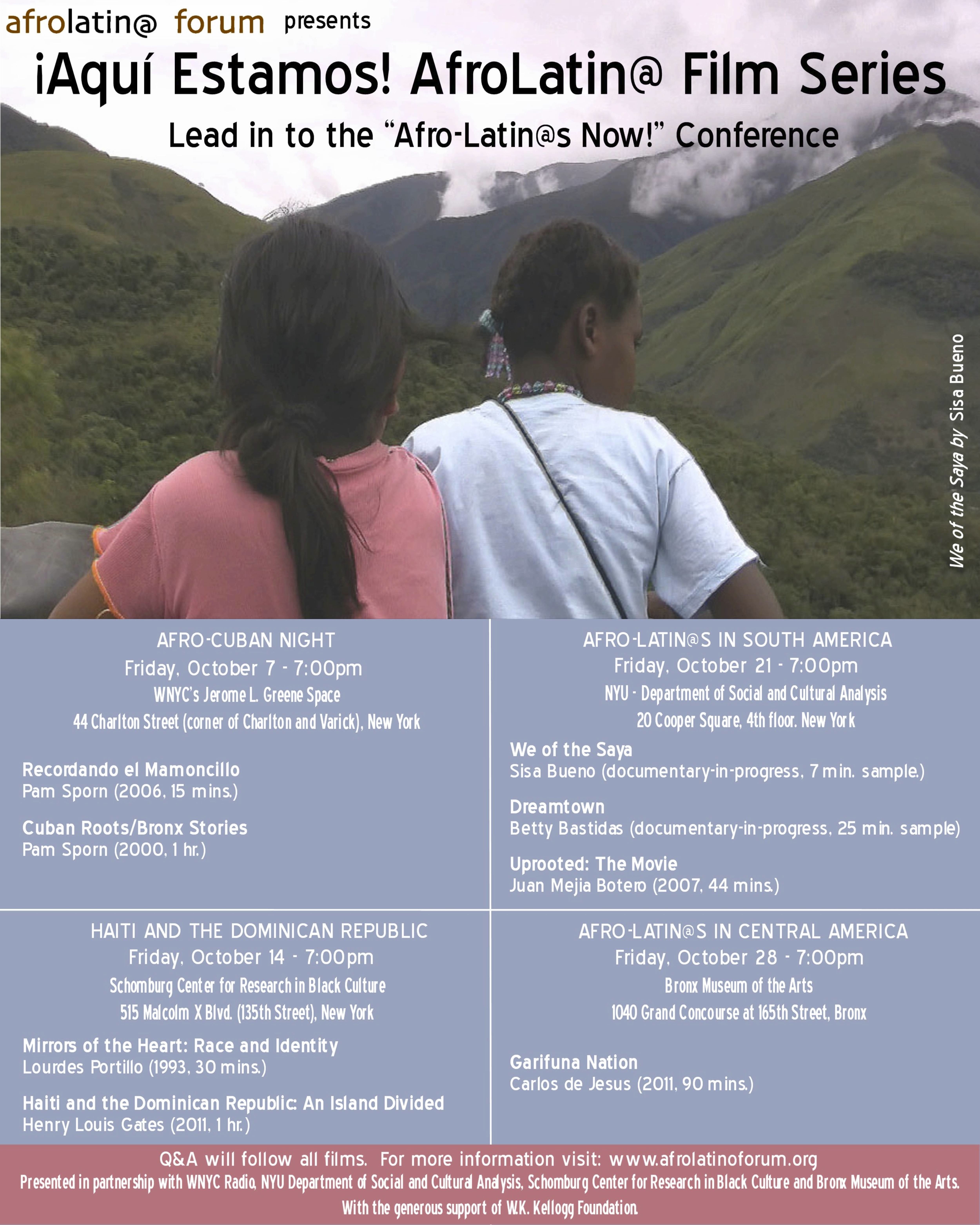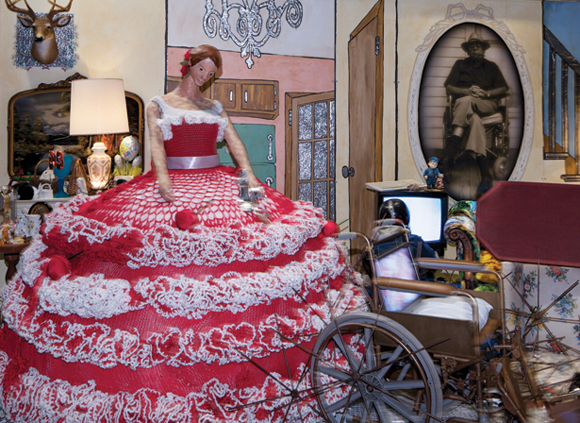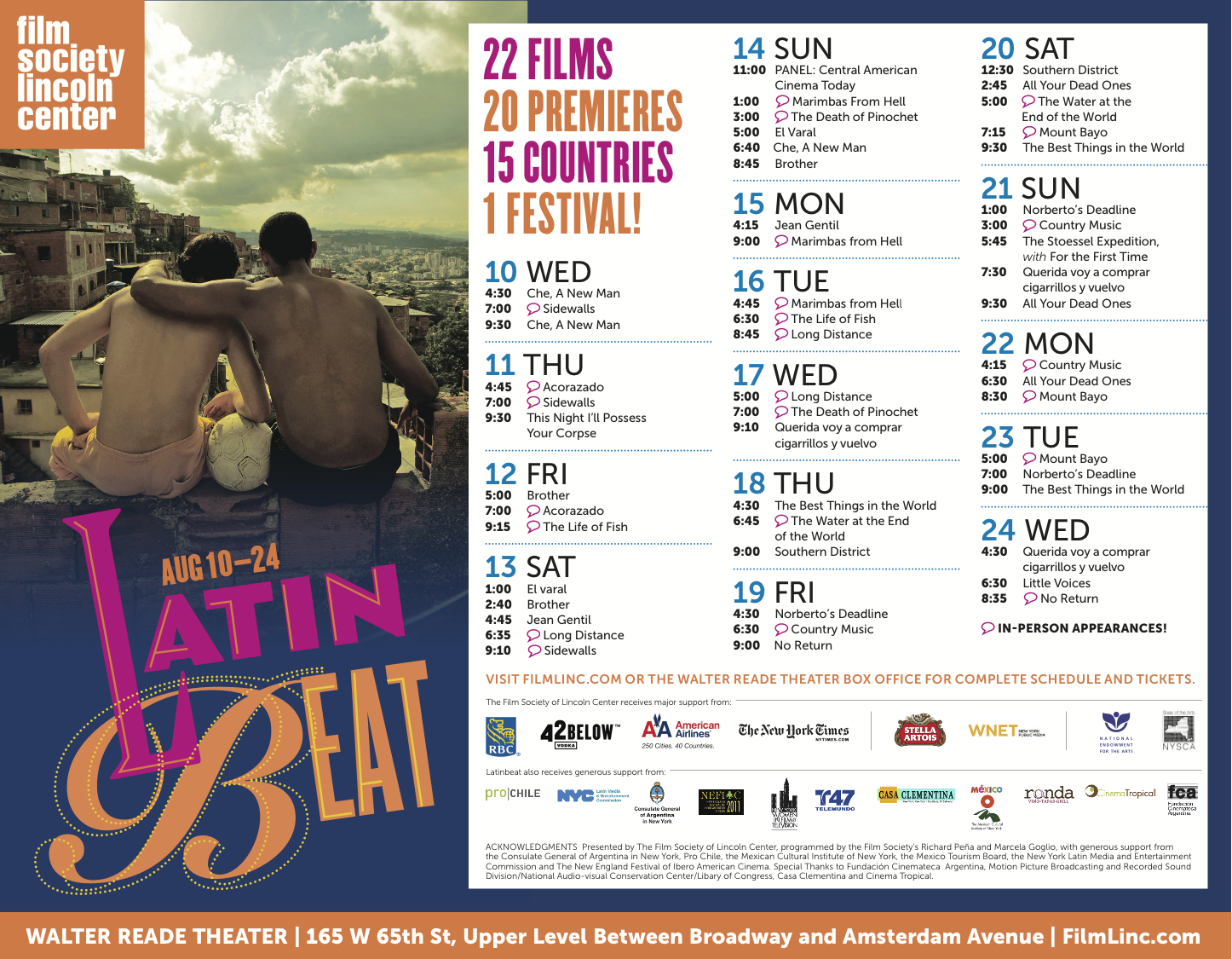Note: Who should decide Puerto Rico’s future political status? As all Latinos know, and some non-Latinos, the term “Latino” or “Hispanic” is merely an umbrella term to lump all Spanish-speakers together. Unfortunately, in lumping Latinos all together, there is an assumption that Latinos are all the same.
Not true. There is one sub-group of Latinos that actually has US citizenship, though they’re born in their own country. They are the only “Latinos” who have this privilege — Puerto Ricans. For years, there has been an ongoing debate on the island of whether or not Puerto Rico gains its independence or becomes a U.S. state. Until now, the debate has primarily taken place either on the island or among Puerto Ricans.
On September 13, 2011, the debate was finally taken to Congress. For the first time ever a political forum regarding the status of the island was organized in Congress by the community group, The University of Puerto Rico Alumni and Friends Abroad Association (UPRAA). The forum was a discussion and not a political hearing. The event, held on Capitol Hill in Washington DC, featured representatives of the three parties’ ideologies of the island: those in favor of statehood; those in favor of the current status and those wanting independence.
Setting the stage for the discussion was Dr. Edwin Meléndez, director of the Center for Puerto Rican Studies at Hunter College (CUNY), New York. Dr. Meléndez explained the island’s evolving history and the unique situation it finds itself in these days that has the potential to impact any debate on the future political status of Puerto Rico.
The following is Dr. Meléndez’s opening presentation for the Sept. 13 forum “Puerto Rico at its Political Crossroads: A forum to discuss the political future of the island.”
— Latina Lista
The Puerto Rican Diaspora and the Political Status of Puerto Rico
By Edwin Melendez
Latina Lista (September 23, 2011)
There is no topic that incites as much passion among Puerto Ricans as the political status of the island. However, very rarely do stateside Puerto Ricans get an opportunity to discuss this topic with Puerto Rican leaders from the island.
Today I will examine the political status of Puerto Rico from a perspective acknowledging the role and rights of the Puerto Rican people in diaspora.
The origins of the Puerto Rican migration to the United States can be traced to the Latin American wars for independence and to the development of trade networks in the Northeast cities of New York, Hartford, and Boston during the early nineteenth century.
Shortly after the Spanish government lost Puerto Rico to the United States, the American government actively promoted migration as a solution to unemployment and poverty on the island.
By the end of the Second World War, advances in air transportation and economic policies induced the first of several significant exoduses from the island. It is estimated that over 400,000 Puerto Ricans migrated to the United States in the late 1940s and 1950s. Even larger waves were estimated for the 1980s and over the last decade.
All in all, today the majority of Puerto Ricans reside in the United States, not on the island of Puerto Rico. According to the 2010 Census, there are 4.6 million Puerto Ricans in the U.S., with only 3.5 million on the island, excluding foreigners. About one-third of those currently residing in the United States were born in Puerto Rico.
Puerto Ricans are dispersed across all states, with concentrations in New York, Florida, and New Jersey. Though the majority of Puerto Ricans still reside in New York, demographic projections suggest that by the end of this decade the number of Puerto Ricans in Florida will surpass those in New York.
The Political Status and the Diaspora
The question for consideration today is what role, if any, stateside Puerto Ricans should or could play in the determination of the future political status of Puerto Rico?
For the first time in history, the question of the future status of Puerto Rico is being discussed when a majority of the Puerto Ricans do not reside in the territory. In other words, I will examine whether 57 percent of the Puerto Rican people will have a voice and vote in the determination of their destiny.
Stateside Puerto Ricans play a critical role in the political process for any congressional action. Excluding the Resident Commissioner, who is elected to that body by the island population, there are currently four members of the United States House of Representatives of Puerto Rican descent.
Besides the direct connection of the congressional delegation to Puerto Ricans in their districts, there is a vast network of elected local officials and other civic leaders who greatly influence Congress and public opinion on this matter.
Stateside Puerto Ricans, whether they are born in Puerto Rico or not, are critical stakeholders because they influence the political process in the United States well beyond the congressional legislative process. Puerto Ricans have been elected to city, county, and state offices and they are active leaders in both the Democratic and Republican parties.
Then there is the potential participation of stateside Puerto Ricans in a referendum. To date, the House of Representatives has undertaken the question of Puerto Rico’s status and approved legislation on two occasions; the Senate has considered but never passed legislation on this matter.
The prevailing view as stated in the most recently approved legislation in the House of Representatives supports that all United States citizens born in Puerto Rico but residing in the 50 states would have a vote in the plebiscite, but not those who were not born in Puerto Rico.
Stateside Puerto Ricans also are critical stakeholders because they maintain economic and social ties with the island, which are critical to its economy and social fabric. Using tourism as an indicator of the constant flow of Puerto Ricans to the island, about two-thirds [63.4 percent in 2010] of visitors to the island stay in other places than hotels. [This number excludes visitors to the island who are not simply in a cruise ship stop or transient military personnel].
Even when we do not consider those Puerto Ricans who stay in hotels, it is reasonable to assume that a significant portion of the island’s tourism is from stateside Puerto Ricans who are visiting family, on vacation, or conducting business. We go on vacations, we purchase merchandise, and we visit restaurants. We are renting former primary homes, we have second homes or other real estate property, or we invest in businesses.
Some of our children take advantage of the island’s educational system. And after retirement, some of us plan to live or spend a significant portion of our time on the island. In short, we are a significant group of consumers and investors in the island economy.
Given recent trends in migration, the economic impact of stateside Puerto Ricans on the island’s economy is likely to grow over the next decades. All things considered, it is in the best interest of Puerto Rico’s residents to strengthen the ties that bind us to our homeland.
In this context, one can make the argument that the active, broad engagement of stateside Puerto Ricans, whether island born or descendants, is critical for a resolution to the question of the status of Puerto Rico.
Stateside Puerto Ricans should be encouraged to become involved in the decision- making process of the status of Puerto Rico question. Consequently, all U.S. citizens of Puerto Rican descent should also participate in any referendum.
Referendums on the Status Questions
So what is the historical record of stateside Puerto Ricans’ participation in Puerto Rico status referendums?
Since the creation of the Commonwealth in 1952, there have been three local referendums on the political status of Puerto Rico [in 1967, 1993, and 1998], and a referendum held in 1991 seeking to amend the Puerto Rican constitution to ensure certain rights or principles when deciding Puerto Rico’s political status.
Stateside Puerto Ricans did not participate in any of these local initiatives. However, Congress has examined the status question on several occasions, and these processes have opened the door for the consideration of the role and participation of Puerto Ricans who do not reside in Puerto Rico.
In 1989, Senators Johnston and McClure introduced the Puerto Rico Status Referendum Act (S.712) which called for a referendum to be held in 1991. Though this bill died in congressional committee and never reached a vote, it served as the foundation for subsequent local efforts in 1991 and 1993, and more significantly it ignited the engagement of the stateside Puerto Rican community on the question of the status of Puerto Rico.
In 1998, the United States-Puerto Rico Political Status Act (H.R. 856) passed in the House but not in the Senate. It stated that Puerto Ricans would not be allowed to vote in the election.
Congressman Serrano presented an amendment to allow U.S. citizens of Puerto Rican descent residing in the 50 states to vote in the plebiscite, but it also was defeated, by a vote of 356 to 57.
In 2007, the Puerto Rico Democracy Act of (H.R. 900), a successor of H.R 856, never had enough votes to carry a debate.
In 2009, the Puerto Rico Democracy Act (H.R. 2499, a successor to H.R. 900 from 2007), was passed by the House with bi-partisan support. Under this act, all United States citizens born in Puerto Rico would have been eligible to participate in the plebiscite, but not those of Puerto Rican descent.
An unsuccessful referendum bill that was proposed by Senators Johnston and McClure in 1991 (S.712) provides a case study for the potential role of the stateside Puerto Rican community in future plebiscites on the status of Puerto Rico. With the active endorsement and participation of the Puerto Rican political leadership, the Committee Pro-Puerto Rican Participation (CPPRP hereafter) was created to insure the right of the Puerto Rican people “to vote in the Puerto Rican plebiscite.”
In addition to advocating for the participation of all Puerto Rican people born on the island, the committee advocated a key principle in the resolution of Puerto Rico’s political status: that the results of the plebiscite would be binding to the U.S Congress. The campaign was nonpartisan with respect to the status options and a broad range of civic and political leaders actively participated in it.
The reasons for advocating the right of the stateside Puerto Rican people to vote in the plebiscite were simple yet powerful. Foremost, the committee advocated for a clear defense of the right to self-determination, as understood by the international community.
The Puerto Rican people are one, whether they reside in the island or elsewhere. The referendum was considered an important event that transcended local elections because it provided a framework for the future of the country, and by implication of all the Puerto Rican people.
The results of the referendum were likely to have a significant impact on the social and cultural conditions of all Puerto Ricans, including those residing in the United States (whether they were born there or in Puerto Rico). The committee issued several reports and was able to score several important political victories, including the holding of congressional hearings in East Harlem, New York.
The political leadership in Puerto Rico was ambivalent, to say the least, about the participation of stateside Puerto Ricans. Early on in the process, Governor Hernandez-Colon declared his support, but a few months later he opposed an agreement reached by the sponsors of the bill in the House of Representatives.
The agreement was crafted by emissaries from Puerto Rico’s three political parties (including the Governor’s own party), and the CPPRP leadership. Despite opposition from the island politicians, the efforts of the CPPRP were successful in establishing expectations for future negotiations on the status of Puerto Rico in Congress. The most recent bill – the 2009 Puerto Rico Democracy Act recently mentioned, recognizes the right of all Puerto Rico-born citizens to participate.
Latino Diasporas and Transnational Politics
Before providing some concluding thoughts, I would like to address an important element in the new political environment that directly affects transnational politics between Puerto Rico and the United States.
I am referring to the growing Latino population and how the CPPRP efforts opened pathways for other populations in diaspora to engage in local politics in their countries of origin.
The fact that Puerto Ricans are U.S. citizens is well known, certainly among the audience in this forum. However, the concept of dual citizenship is relevant to the question under examination.
Immigrants who become naturalized American citizens, for example, have dual citizenship. They can carry two passports and travel freely within their native and naturalized countries. Like Puerto Ricans, they can go back and forth to their country of origin to work or live as they see fit.
Dual citizenship is becoming more popular in many countries, for good reasons. Citizens with dual citizenship strengthen the economy of both countries by promoting trade and investment, transferring technology and knowledge, and facilitating access to a broader pool of human resources.
Countries like India, the Philippines, and Mexico are liberalizing their citizenship laws to take advantage of the benefits of dual citizenship.
Dual citizenship is a common practice among U.S. Latinos. Some examples of countries that encourage and take advantage of dual citizenship include Columbia, Costa Rica, Dominican Republic, Ecuador, El Salvador, Guatemala, México, and Peru.
An important component of dual citizenship among U.S. Latinos is that it enables them to participate in their country of origin politics. Two recent examples are:
In May of 2004, for the first time in history, Dominicans in the U.S. voted in the presidential elections of the Dominican Republic. Roughly 52,000 throughout the United States registered to vote in the elections.
In 2006, for the first time, Mexicans in the U.S. were allowed to vote by absentee ballot in the Mexican presidential election. About 4 million of the 10 million Mexican residents in the U.S. were eligible to participate.
The importance of these processes to the Puerto Rican case is evident. For one, they dismiss the idea that the logistics of the electoral process are too complicated or costly. Like Puerto Ricans, these Latino communities are dispersed all over the U.S., but they have the political infrastructure and have been able to get the cooperation of stateside governments to implement electoral processes for transnational politics.
But perhaps more important, the growing political presence of Latinos in Congress will add support to initiatives of concern to Puerto Ricans and boost a more powerful coalition to resolve the status of Puerto Rico than in the past.
The Latino leadership in Congress understands perfectly the implications of the rights of the Puerto Rican people to participate in deciding the future political status of the island.
Conclusion
In conclusion, the environment is becoming more conducive for stateside Puerto Ricans to play a larger role in the status question.
The fact that the majority of Puerto Ricans now live in the United States is a game changer: How can the future of the island be decided by a minority of our people? How can the rights of the people be denied when the political influence of the stateside Puerto Rican community is broader, more diverse than ever, and growing?
The fact that Latinos have a growing influence in the political process is a game changer as well. A broad Latino political coalition can finally induce Congress to recognize the rights of all Puerto Rican people and to make a commitment, prior to any plebiscite, to enact a bill which will be binding to the U.S Congress.
Finally, it is very important that stateside Puerto Ricans become part of the dialogue and political process about the future of Puerto Rico.
We are at a historical juncture when more and more of our families are divided, when our extended families have bilingual children and are becoming more culturally diverse, and when we seek greater connections to those living afar.
It is well known to all of us participating in this forum that there is a general lack of understanding of the stateside Puerto Ricans among the Puerto Ricans residing on the island.
I am hopeful that our participation in any referendum on the status of Puerto Rico will help strengthen social and cultural bridges between the two communities: Para los de aqui y para los de allá.
I am also hopeful that today we will engage in a civic dialogue that will mark a turning point towards the goal and aspiration of UN SOLO PUEBLO.
I leave the panelists with this question:
Do you support the right of all Puerto Ricans to vote in a status referendum?
Dr. Edwin Meléndez is director of the Center for Puerto Rican Studies at Hunter College (CUNY), New York. He has authored or edited ten books and has managed over thirty-five research, outreach, or demonstration projects. Dr. Meléndez was the director of the Mauricio Gastón Institute for Latino Community Development and Public Policy at the University of Massachusetts Boston as well as a faculty member in the Economics Department and the Ph.D. Program in Public Policy. He also served on the faculties of the Massachusetts Institute of Technology and Fordham University.




